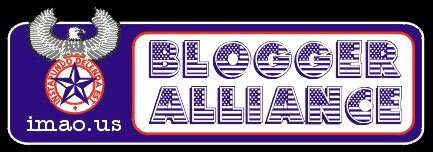« Large Demonstration in Cairo's Tahrir Square | Main | Dhimmitude Alive And Well In 'Dhimmiworld' »
March 26, 2007
What We Should Learn About 'Iraq 2007' From 'Algiers 1957'
"Act quickly," Petraeus wrote in January 2006, "because every army of liberation has a half-life." This is true not only in the field but at home. James Thurber once said that the saddest two words in the English language are "too late." Terrible as it is to think that our surge may have come too late, it is much more terrible to think that feckless politicians, out of whatever calculation, may pull the plug before the new approach is fully tested. - "How to Win in Iraq--and How to Lose"Arthur Herman, who has taught history at George Mason University and Georgetown University, is the author of The Idea of Decline in Western History and To Rule the Waves: How the British Navy Shaped the Modern World, among other books, offers an important commentary today at commentarymagazine.com that reminds us most wars are lost, not won. The record of history is clear, we know that the roots of failure in fighting insurgencies like the one in Iraq are not military.
To the contrary, Western militaries have shown remarkable skill in learning and relearning the crucial lessons of how to prevail against unconventional foes, and tremendous bravery in fighting difficult and unfamiliar battles.If Iraq fails, the cause will have to be sought elsewhere, and the answer lies at home, not in Iraq.
To most Americans, in no small part due to the Democrats and their leftist masters, the nearest example of a failed war is Vietnam. Then, as in Iraq today, we came up against a guerrilla-type insurrectionary force led by ideological extremists; in the end, we were forced to withdraw and surrender the country of South Vietnam to the aggressors. But Herman argues that an even more striking parallel to our present situation in Iraq, exists in the French experience in Algeria almost exactly 50 years ago. It was there that French troops and a beleaguered local government faced an insurgency mounted by Muslim extremists who had managed to gain the upper hand. In response, the leadership of the French army had to figure out, almost from scratch, how to fight unconventional wars of this kind--with results that have influenced the thinking of counterinsurgency experts ever since :
... French troops in Algeria found themselves reacting to one crisis after another, while a succession of commanders, strategies, and resources was rotated into the effort in piecemeal fashion. Even with 140,000 soldiers on the ground, in a country with less than half the population of Iraq in 2007, the French government found itself helpless to reverse the course of events. The rapidly deteriorating situation prompted Algeria's white population to turn against its government. By late 1956, when terror bombings in the capital city of Algiers killed 49 people and maimed many more, the overstressed, overstretched French police and army were ready to throw in the towel.Is this begining to sound familiar? Think about the present Democratic leadership and David Petraeus, today.... But on August 1, 1956, a French lieutenant colonel of Tunisian descent named David Galula had taken command of the mountainous and rebel-infested Aissa Mimoun area of Kabylia. To the FLN's unconventional mode of warfare, Galula responded with unconventional methods of his own. These proved so successful so quickly that they were soon adopted by French commanders in other parts of Algeria.
... As early as January 1957, French General Jacques Massu and intelligence chief Roger Trinquier were ready to apply some of Galula's techniques to the urban environment of the capital, Algiers. After weeks of hard fighting, Massu and his paratroopers broke the back of the insurgency in the city, installing a block-by-block intelligence network that kept the FLN on the run and encouraged moderate Muslims to step forward.
... By 1959, Galula's principles had been extended across Algeria. Some 600 "specialized administrative sections" were set up, each headed by army officers to oversee civil as well as military affairs. The new structure finally allowed the French army to use effectively its superior numbers (including 150,000 loyal native troops, more than a third of the total) and conventional military hardware. Helping to put the guerrillas on the defensive were such tactics as the division of troops into "static" and "mobile" units to deal with terrorist outbreaks; ...
Be sure and read all of Arthur Herman's piece here.
Cross posted from Hyscience
Posted by Richard at March 26, 2007 6:10 AM


